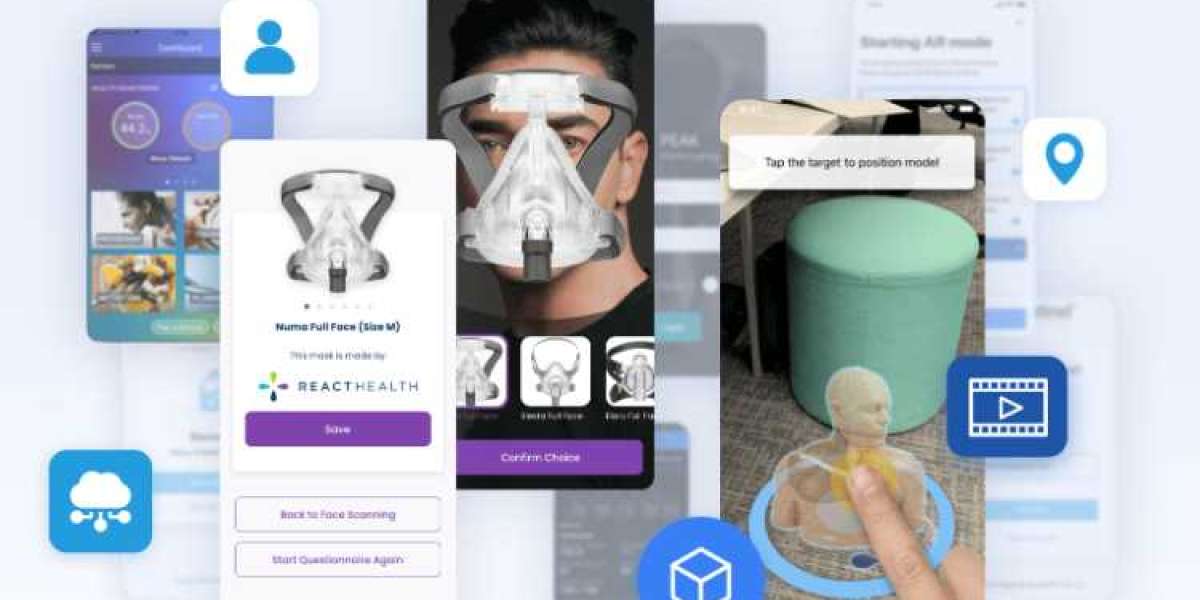The digital transformation of healthcare has revolutionized how patients and providers interact, manage health records, and deliver treatments. Among the key innovations in this space are mobile health (mHealth) applications. These apps enable healthcare services to reach patients anywhere, providing real-time health data, personalized care, and support. This evolution has given rise to the need for specialized mHealth app development companies that focus on creating secure, user-friendly, and feature-rich applications tailored to healthcare providers, patients, and enterprises.
In this article, we will explore the importance of mHealth apps, the role of development companies in creating these solutions, and the essential features, challenges, and best practices for developing successful mHealth applications.
The Growing Importance of mHealth Apps in Healthcare
mHealth apps have grown exponentially, driven by the increasing demand for remote health monitoring, the convenience of virtual consultations, and the growing adoption of wearables. From chronic disease management to fitness tracking, mHealth apps have a wide range of use cases. As a result, the global mHealth market is expected to reach $189 billion by 2025, according to Global Market Insights.
Key benefits of mHealth apps include:
- Improved access to healthcare: Patients can consult doctors via video calls, book appointments, and access medical records without the need for in-person visits.
- Remote patient monitoring: Wearable devices can track vital signs such as heart rate, blood pressure, and glucose levels, providing real-time data to healthcare providers.
- Increased patient engagement: Through reminders, educational content, and direct communication with healthcare professionals, patients become more proactive in managing their health.
- Cost-effectiveness: mHealth apps reduce the cost of care delivery by minimizing the need for hospital visits, improving resource allocation, and reducing readmission rates.
- Chronic disease management: These apps allow continuous monitoring and management of conditions like diabetes, asthma, and heart disease, leading to better health outcomes.
Given these advantages, the demand for mHealth app development is expected to grow as healthcare providers seek innovative ways to deliver personalized and efficient care.
Role of an mHealth App Development Company
An mHealth app development company specializes in building solutions that cater to the healthcare sector. These companies combine expertise in healthcare regulations, user experience design, and mobile technology to create secure, compliant, and scalable apps. They play a crucial role in:
- Designing user-friendly interfaces: mHealth apps must cater to a diverse audience, including elderly patients, doctors, and caregivers. Development companies prioritize creating intuitive and accessible interfaces that ensure usability for all users.
- Ensuring regulatory compliance: Healthcare applications need to comply with strict regulations such as HIPAA (Health Insurance Portability and Accountability Act) in the U.S., GDPR (General Data Protection Regulation) in Europe, and others. App development companies ensure that the software meets these regulatory requirements to protect patient data and privacy.
- Integration with medical systems: mHealth apps need to integrate seamlessly with Electronic Health Records (EHR) and Electronic Medical Records (EMR) systems, wearable devices, and other healthcare technologies. App developers ensure these integrations are smooth, allowing for the efficient exchange of data.
- Data security and privacy: Given the sensitivity of healthcare data, robust security measures, such as encryption and secure data storage, are essential. App development companies implement multi-layered security protocols to protect patient information from cyber threats.
- Scalability and maintenance: mHealth apps should be designed to handle increased user loads as they grow in popularity. Additionally, healthcare companies rely on long-term maintenance services from developers to ensure apps remain up-to-date and free from bugs or vulnerabilities.
Essential Features of an mHealth App
To meet the needs of healthcare providers and patients, mHealth apps must include a set of essential features. The following are some of the most critical functionalities that an mHealth app development company will prioritize:
1. User Profiles and Authentication
To personalize healthcare services, mHealth apps typically require users to create profiles. These profiles store personal information, health data, and preferences, allowing for a tailored experience. Secure authentication methods, such as two-factor authentication (2FA) or biometric logins (fingerprint or facial recognition), are implemented to safeguard access.
2. Appointment Scheduling and Reminders
Patients need the ability to book appointments directly through the app, choosing available time slots with their healthcare provider. Automated appointment reminders reduce no-show rates and improve patient adherence to treatment plans.
3. Telemedicine and Video Consultations
Telemedicine has become one of the most sought-after features in mHealth apps, especially in the post-COVID era. The ability to conduct video consultations allows patients to consult doctors remotely, without leaving their homes. This feature requires seamless video and audio functionality, along with secure communication protocols to protect sensitive conversations.
4. Real-Time Health Monitoring
Wearable devices, such as fitness trackers or medical-grade sensors, can sync with mHealth apps to provide real-time health data. This feature is crucial for monitoring chronic conditions like diabetes or cardiovascular diseases. Patients and healthcare providers can track vital signs and receive alerts if abnormalities are detected.
5. Electronic Health Records (EHR) Integration
Integration with EHR systems ensures that all patient data, including medical history, lab results, and treatment plans, are available in one centralized location. This reduces the risk of medical errors, improves care coordination, and gives patients easier access to their health records.
6. Medication Tracking and Reminders
Many mHealth apps include features that allow patients to track their medication schedules. Reminders can be set to notify users when it’s time to take their medicine, improving adherence and reducing the likelihood of missed doses.
7. Push Notifications
Timely alerts, such as appointment reminders, medication schedules, or updates from healthcare providers, are delivered via push notifications. These reminders ensure patients stay engaged with their treatment plans.
8. Analytics and Reporting
For healthcare providers, data analytics play a critical role in assessing patient outcomes and improving care. mHealth apps can generate reports on patient health data, which can then be analyzed to make informed clinical decisions.
9. Chat and Communication Channels
Patients should have the ability to ask questions or communicate with their healthcare provider directly through the app. Secure chat functionalities or voice messaging ensure patients receive timely responses without the need for a clinic visit.
10. Payment Gateways
Including secure payment gateways for processing payments related to consultations, treatments, or subscriptions is essential for mHealth apps. This feature allows users to pay conveniently within the app and enables providers to offer paid services easily.
Challenges in mHealth App Development
Despite the rapid growth of the mHealth industry, developing successful healthcare applications comes with several challenges. Here are the primary obstacles that mHealth app development companies must navigate:
1. Regulatory Compliance
Healthcare is one of the most heavily regulated industries, and failing to meet legal standards can result in hefty fines and reputational damage. Navigating complex regulations such as HIPAA, GDPR, and the FDA’s guidelines for medical devices can be daunting for developers. Ensuring that the app meets all these regulations without sacrificing user experience or functionality is a major challenge.
2. Data Security and Privacy
Healthcare data is highly sensitive, making security a top priority. Developers must implement advanced encryption, secure data storage, and other protocols to protect patient information. However, maintaining security while ensuring the app remains user-friendly is often a delicate balancing act.
3. Interoperability
Many healthcare providers use different EHR systems, medical devices, and software platforms. Ensuring interoperability between the mHealth app and existing systems is crucial but can be technically complex. Failure to achieve smooth integration may lead to fragmented data and inefficiencies.
4. User Adoption and Engagement
Healthcare apps often need to be intuitive and easy to use, especially for older adults or less tech-savvy patients. Designing apps that cater to diverse user groups without compromising functionality is a significant challenge. Additionally, keeping users engaged long-term requires thoughtful design, meaningful content, and useful features.
5. Continuous Updates and Maintenance
The healthcare industry is constantly evolving, with new regulations, technologies, and user expectations. To stay relevant, mHealth apps require continuous updates and maintenance, which can be resource-intensive for development companies and healthcare providers alike.
Best Practices for Successful mHealth App Development
mHealth app development companies can overcome these challenges by following best practices that ensure high-quality, compliant, and user-centric solutions. Here are some tips for building a successful mHealth app:
1. Prioritize Security
From the initial design phase, prioritize the security of the app by implementing encryption, secure communication channels, and regular security audits. Adhering to compliance standards like HIPAA ensures that the app remains safe and trustworthy for users.
2. Focus on User Experience
mHealth apps need to be easy to navigate, with a clean and simple interface. Conduct user testing with different demographics to ensure that the app caters to both tech-savvy and less experienced users. Incorporating feedback from patients and healthcare providers can also help improve the app’s usability.
3. Ensure Seamless Integration
Developers should focus on making the app interoperable with major EHR systems, wearables, and healthcare platforms. Seamless integration improves the efficiency of healthcare delivery and ensures that patient data is shared securely across systems.
4. Adopt Agile Development
Agile development methodologies allow for continuous improvement and regular updates. By breaking down the development process into manageable sprints, mHealth app developers can address challenges, test features, and incorporate feedback faster.
Future Trends in mHealth App Development
As the landscape of healthcare continues to evolve, so too does the development of mHealth applications. Here are some emerging trends that will shape the future of mHealth app development:
1. Artificial Intelligence (AI) and Machine Learning (ML)
AI and ML technologies are set to transform mHealth apps significantly. By leveraging these technologies, developers can create applications that provide personalized health recommendations, analyze user data for insights, and even predict health issues before they arise. For instance, AI-powered chatbots can assist patients with their queries, while machine learning algorithms can analyze patterns in patient data to identify risks associated with certain behaviors or conditions.
2. Wearable Technology Integration
The integration of wearables, such as smartwatches and fitness trackers, into mHealth applications is becoming increasingly prevalent. As these devices collect real-time health data, mHealth apps can provide insights into user health, track progress toward goals, and alert users and healthcare providers to any concerning trends. As wearable technology advances, the opportunities for mHealth apps to leverage this data will expand, leading to more proactive and personalized healthcare solutions.
3. Telehealth and Remote Patient Monitoring
The demand for telehealth services surged during the COVID-19 pandemic and is likely to remain a vital part of healthcare delivery. Future mHealth apps will continue to refine telehealth capabilities, providing seamless video consultations, remote patient monitoring, and secure communication channels. Enhanced features such as virtual waiting rooms, electronic prescriptions, and integrated billing systems will contribute to a more holistic telehealth experience.
4. Blockchain for Data Security
With increasing concerns around data privacy and security, blockchain technology is emerging as a potential solution for securing health information. Blockchain can provide a decentralized and tamper-proof system for storing patient data, enhancing privacy and security. Future mHealth apps may leverage blockchain to ensure that health data is only accessible to authorized parties and to maintain an immutable record of patient interactions and transactions.
5. Focus on Mental Health Apps
The importance of mental health has gained increased attention in recent years, leading to a surge in demand for mental health apps. Future mHealth applications will likely include features such as mood tracking, guided meditation, therapy chatbots, and access to licensed mental health professionals. The emphasis on mental health and well-being will shape the development of targeted solutions aimed at improving users' emotional health.
6. Gamification of Health
Gamification is becoming a popular strategy to engage users and encourage healthy behaviors. By incorporating game-like elements, such as challenges, rewards, and leaderboards, mHealth apps can motivate users to stick to their health goals. This approach can be particularly effective in managing chronic diseases, where consistent engagement and adherence to treatment plans are critical.
7. Personalization Through Big Data Analytics
The ability to analyze vast amounts of data allows mHealth apps to provide personalized health recommendations tailored to individual users. By integrating data from various sources—such as wearables, EHRs, and user inputs—developers can create a more customized experience. Personalized health plans, targeted reminders, and specific lifestyle recommendations will become standard features of future mHealth apps.
Conclusion
As mHealth apps become increasingly central to healthcare delivery, the role of mHealth app development companies will be more crucial than ever. By staying ahead of trends and continuously innovating, these companies can create solutions that enhance patient engagement, improve outcomes, and streamline healthcare processes.
The future of healthcare is not just about advanced technology; it’s about making health management accessible, efficient, and user-friendly for everyone. Through collaboration between healthcare providers, technology developers, and patients, the full potential of mHealth apps can be realized, leading to a healthier, more informed society.
With the continuous evolution of technology and user needs, mHealth app development companies are poised to lead the charge in transforming the healthcare landscape, ensuring that patients receive the best possible care right at their fingertips.








